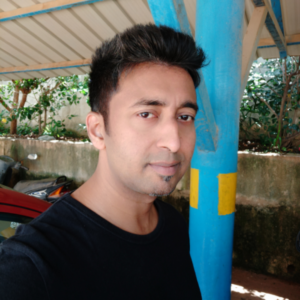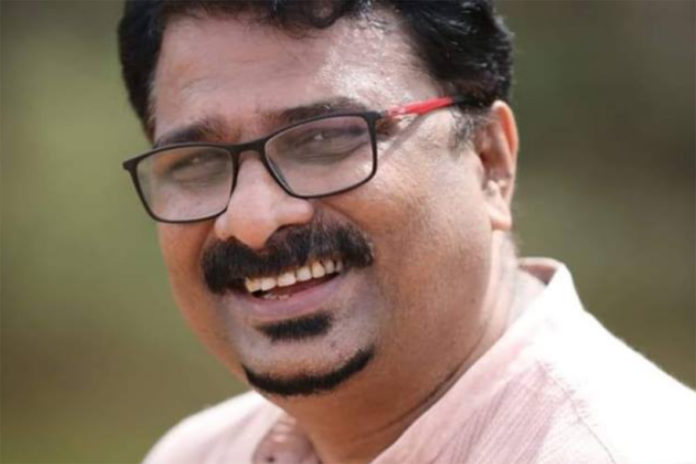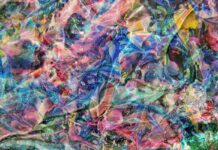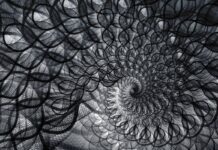Malayalam Poetry in Translation – 8
Translated by Aditya Shankar
(Translator’s Note: The finest of contemporary Malayalam poetry represents the latest poetic sensibility that is on view today. A poem that is able to mend its language and meaning, and blend into the issues of our time will break the barriers of language eventually. In fact, as a translator, I believe it becomes the need of other languages to grow and adapt to the new shapes of meaning that a poem carves for itself. My project ‘Malayalam Poetry in Translation’ is an attempt to showcase the work of some of the finest poets writing in Malayalam. I believe it is only apt to clarify in this note that new poetic sensibility is in no way co-related to the age of a poet, but is a product of her/his poetic outlook and awareness. Also, the scope of this translation series is limited to a sample size and do not encompass the entire spectrum of contemporary Malayalam poetry. Every notable poet manages to continually reinvent his poetic landscape and the poets featured in this series are no exception.)
*
Darwin, Are You Listening?
Inflicted with lost coordinates,
hesitant,
we turned the world into a mayhem.
So as to rectify the error,
we scaled the Everest,
flew to outer space,
landed on the moon.
We sprinted hundred meters in nine seconds,
walked a tightrope across the Niagara falls,
held a hunger strike, became martyrs.
Even after accumulating the heroics,
we cannot surpass the annual ring of adventure
of a rooted hundred year old mango tree
that transcends seasons,
bloom into fruits and flowers.
Darwin, are you listening?
Humans evolve in art and language
to become trees.
Crosscheck the dictionary if you are not sure.
The word ‘tree’ appears much after ‘human’.
(Original poem: He Darwin, Kelkkunnundo? Page 64, Ente Jeevithathile Adyathe Sthree Avasanathe Sthreeyodu Parayunath, Mathrubhumi Books)
I Believe in Art Not Just Because It is Imperfect
We say something is missing,
not to mean it is no more on earth,
but to mean it is invisible to us.
We say we cannot see
not to mean it never existed,
but to mean our eyes have limited power.
We say we saw
not to mean we are the only ones seeing it,
but to mean we are rerouting another eye to it.
Our solitude does not reside in our eyes.
Still, none manifests solitude better than our eyes.
Hence, I drew two eyes.
Still, none managed to sketch a Monalisa around it,
not even Michelangelo.
I believe in art, not just because it is imperfect,
but because it is impossible too.
(Original poem: Apoornamayath Kond Mathramalla, Kalayil Njan Viswasikkunnathu, Page 38, Ente Jeevithathile Adyathe Sthree Avasanathe Sthreeyodu Parayunath, Mathrubhumi Books)
Run, Rosa, Run
Run, Rosa, run.
Keep running.
The world is chasing us.
Rosa, we only have
legs,
gallops and gasps,
ways ahead, that keeps narrowing.
So, run, run.
The sprint in a sport
lasts only hundred metres,
the burst in an alley till the rain arrives,
a chase that ends on alighting the bus
or a rush that sighs on signing the office register.
But this is different Rosa,
this dash is our life.
As if a bullet chases our head.
Is there a river ahead?
Spread your legs like a lotus.
Boulders?
Make them hard like a hoof.
A gorge?
Spread your arms into wings.
Tunnel it with your head.
Sea? Waves?
Shrink into a fish.
Rosa,
scampering humans
are the holy text of our times.
Shaky legs are our weapons.
Panting hearts are our logo.
Tired?
Shift allegiance to the legs of the dead.
Resting in the strength of soil,
they would be renewed.
About to fall?
Head towards to-be-born babies.
They would be waiting after bathing,
bathing in holy water.
If the dead are all rotten,
the wombs are all clogged,
Rosa, come,
let’s run, run and kiss,
transmit life into each other.
Hungry?
Gobble up the whole forest.
It will sprout, sprout again.
Thirsty?
Gulp the whole monsoon.
It will rain, rain and fill.
The city sounds a siren
that we are the wildfire.
The television flashes the breaking news
that we are the earthquake.
The government warns
that we are the tsunami.
We are a mere run, Rosa,
a mere run.
With just four eyes,
we can turn a run into a comet
With two brains,
a run can turn into a book.
With our lungs,
a run can turn into a symphony.
With twenty fingers,
a leap can turn into a home.
With sudden twists and tumbles,
the boundary of a state can be drawn.
So,
run Rosa run,
run in straight lines and circles,
erect and stooping.
Run drawing a rainbow
above your uncle’s home.
Run boring a tunnel beneath
sister-in-law’s ancestral home.
Run elusive to
the telescope of the authorities.
Run two steps ahead
of the police whistle.
Run half an hour ahead
of the cannon ball.
Run in a language more expansive
than the international trade rule.
Run into more impenetrability
than a jail breakers hideout.
Run Rosa run,
run carrying this legless
on your shoulder.
About the Author:
P.N Gopikrishnan, born 1969 at Kodungallur in Thrissur district, is a notable presence in the Malayalam poetry scene. His important works include Madiyarude Manifesto, Idikkaloori Panampattadi (poetry collection), Daivathe Maattiyezhuthumpol (essay collection). Gopikrishnan has penned scripts of movies Olipporu and Pathirakalam and many other documentaries and commentaries. He has won the Kerala Sahithya Akademi award, Ayanam-A Ayyappan award, K Damodaram award, Dr. PK Rajan award, Kunjunni Smrithi award. He is a manager with Kerala State Financial Enterprises (KSFE).
About the Translator:

Aditya Shankar is a Pushcart Prize and Best of the Net nominated poet, flash fiction author, and translator. He edited Tiny Judges Shall Arrive (AHRC, Hong Kong), a selection of KG Sankara Pillai’s poems translated into English. His translations have appeared in the SAARC anthology of poetry, Muse & Murmur, Modern Poetry in Translation, Ethics in Action and elsewhere. His poems have been translated into Malayalam and Arabic and published from 20 or more nations. His poetry collections include After Seeing (2006), Party Poopers (2014), and XXL (Dhauli Books, 2018). His short films have participated in International Film Festivals. He lives in Bangalore, India . (https://adityashankar.ucraft.net/).














